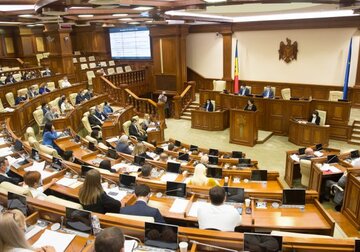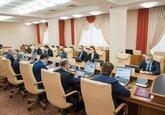
A new mechanism for control and authorization of the heads of the NCFM, NAER, the Competition Council and other bodies controlled by the parliament has been approved in Moldova.
It is envisaged that the heads of the National Commission on the Financial Market, the Competition Council, the National Agency for Dispute Resolution, the Television and Radio Council, the National Agency for Energy Regulation will be able to be dismissed from their positions in the event of improper performance or failure to fulfill their duties, prerogatives or powers, or carrying out inappropriate activities. This is envisaged by the amendments to the current legislation adopted by the parliament in the second reading, which relate to the establishment of a control mechanism and sanctions for the heads of the above-mentioned structures. The authors of the legislative initiative note that giving the parliament the right to dismiss members of autonomous bodies of state power after hearing annual reports on the activities will increase the responsibility of the leadership of these bodies before parliament. The draft law stipulates that when determining the grounds for revocation due to improper performance or non-performance of official duties, prerogatives, powers or as a result of the establishment of improper activities, the relevant parliamentary commission should conduct an objective and transparent analysis of institutional management, decisions made, activity reports, audit reports, complaints, petitions, individual performance objectives and performance indicators of the assessed person or other relevant data and information collected or presented to the commission. Based on this analysis, the committee should draw up a report assessing the managerial skills and professional competence of the board member, the performance of his duties and tasks, or, as the case may be, the effectiveness of the institution. At the same time, the commission will be able to hear the members of the Administrative Council, any employee of the institution in which they work, as well as request and receive any relevant information from individuals or legal entities. If there are grounds for withdrawal, the commission will draw up a reasoned report setting out the facts, circumstances and conditions that serve as the basis for the withdrawal, and submit it to the plenary session of parliament. The plenary session of the parliament by a majority vote of the deputies will be able to recall the members of the Administrative Council from the government bodies controlled by the parliament. The decision of the parliament can be challenged in court.// 23.09.2021 — InfoMarket.







